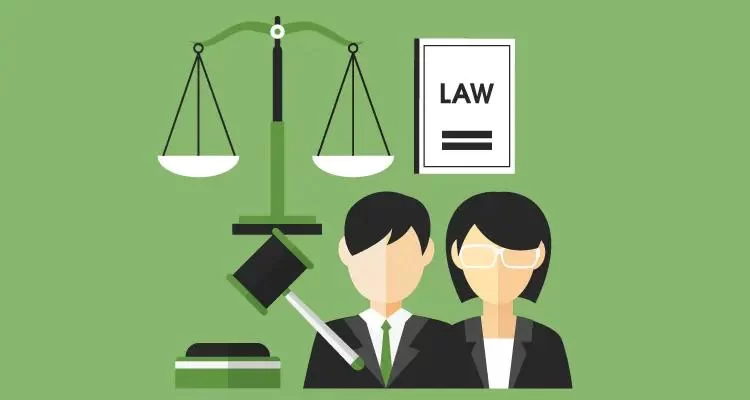Legal Advice for Starting a Home Business: Essential Steps and Tips
May 12, 2025

Understanding Legal Requirements for Home Business
Starting a home business is an exciting venture, but it comes with a range of legal responsibilities. Before you dive into your new business idea, it’s essential to understand the legal landscape and ensure your business complies with local, state, and federal regulations. Failing to do so can lead to fines, penalties, and even the closure of your business.
In many places, home businesses must comply with zoning laws, which dictate where businesses can be run from residential properties. It's vital to check with local authorities to ensure your home business does not violate any zoning restrictions. Additionally, some businesses may require special permits depending on the nature of the service or product offered.
Choosing the Right Legal Structure for Your Home Business
When starting a home business, one of the most crucial legal decisions you'll make is choosing the appropriate legal structure. The structure you select will affect your taxes, liability, and ability to raise funds. The most common legal structures for home businesses include:
1. Sole Proprietorship: This is the simplest structure where you and your business are considered one entity. It's easy to set up but offers no personal liability protection.
2. Limited Liability Company (LLC): An LLC provides personal liability protection while maintaining flexibility in how the business is managed and taxed.
3. Corporation: This structure separates the business from its owners, offering more protection from personal liability but also requiring more administrative work and higher costs.
Choosing the right structure is essential, as it can have long-term consequences on your business’s operations and tax obligations. You may want to seek legal advice to ensure you make the best choice for your business goals.
Registering Your Home Business: What You Need to Know
Once you've decided on your business structure, the next step is registering your home business with the appropriate authorities. In many areas, you will need to register your business name (also known as a "doing business as" or DBA name) with the county or state where you operate.
Registration is often required for legal purposes, such as obtaining business licenses and permits. Additionally, registering your business name helps protect your brand identity and prevents others from using the same name in the same location. Depending on your location and the type of business, you may also need to apply for an Employer Identification Number (EIN) for tax purposes.
Obtaining the Necessary Licenses and Permits
Operating a home business may require several licenses and permits, depending on the nature of the business and your location. For example, if you are selling goods, you may need a sales tax permit. If you are offering professional services, you may need a professional license.
Different cities, counties, and states have varying requirements for business licenses and permits, so it's important to research the regulations specific to your industry and location. Ensure that you have all the necessary licenses in place to operate legally.
A good starting point is to visit your local business licensing office or check their website for a list of required documents and fees. Getting proper licensing upfront can save you from legal trouble down the road.
Tax Considerations for Starting a Home Business
One of the most significant legal aspects of running a home business is understanding your tax obligations. The tax rules for home businesses can be complex, and failure to comply with tax laws can lead to serious consequences.
First, you will need to determine whether you will be required to collect sales tax on goods or services you sell. In many jurisdictions, sales tax is collected on sales of tangible goods. Additionally, you may be eligible for certain tax deductions related to running a business from home, such as home office deductions.
Keeping accurate records of your income and expenses is essential to ensure you file your taxes correctly. Consider working with an accountant or tax professional to ensure you're taking advantage of all available deductions and staying compliant with tax laws.
Common Legal Mistakes to Avoid When Starting a Home Business
While starting a home business can be rewarding, there are several common legal mistakes that new entrepreneurs often make. These mistakes can cause financial and legal problems down the road. Some of the most common errors include:
1. Neglecting Legal Structure: Not choosing the appropriate legal structure for your business can expose you to personal liability and other legal issues.
2. Skipping Licenses and Permits: Failing to obtain necessary licenses or permits can result in fines and the closure of your business.
3. Inadequate Contracts: Not having written contracts for transactions or agreements with clients and suppliers can leave you vulnerable to disputes.
4. Mixing Personal and Business Finances: Keeping separate accounts for personal and business finances is crucial to maintaining clear financial records and avoiding tax issues.
To avoid these pitfalls, make sure you consult with a legal professional who specializes in small businesses or home-based businesses. Legal advice can help you navigate these challenges and protect your business in the long term.
Starting a home business is an exciting journey, but it’s essential to ensure that you’re operating within the bounds of the law. By understanding legal requirements, choosing the right structure, obtaining necessary licenses, and staying compliant with tax laws, you’ll be setting yourself up for long-term success. To get the best advice and services tailored to your needs, consider visiting ESPLawyers for personalized guidance on your home business journey.









